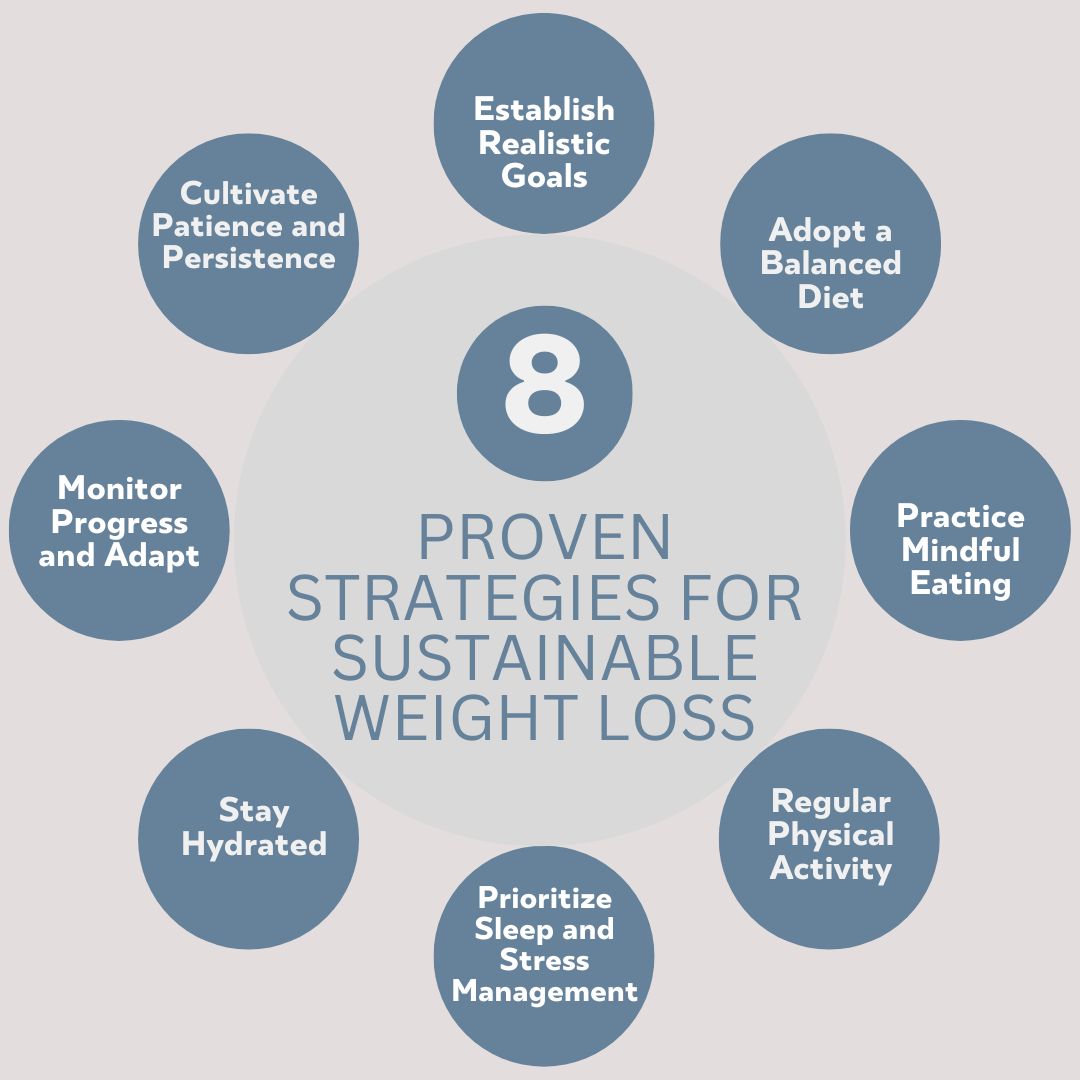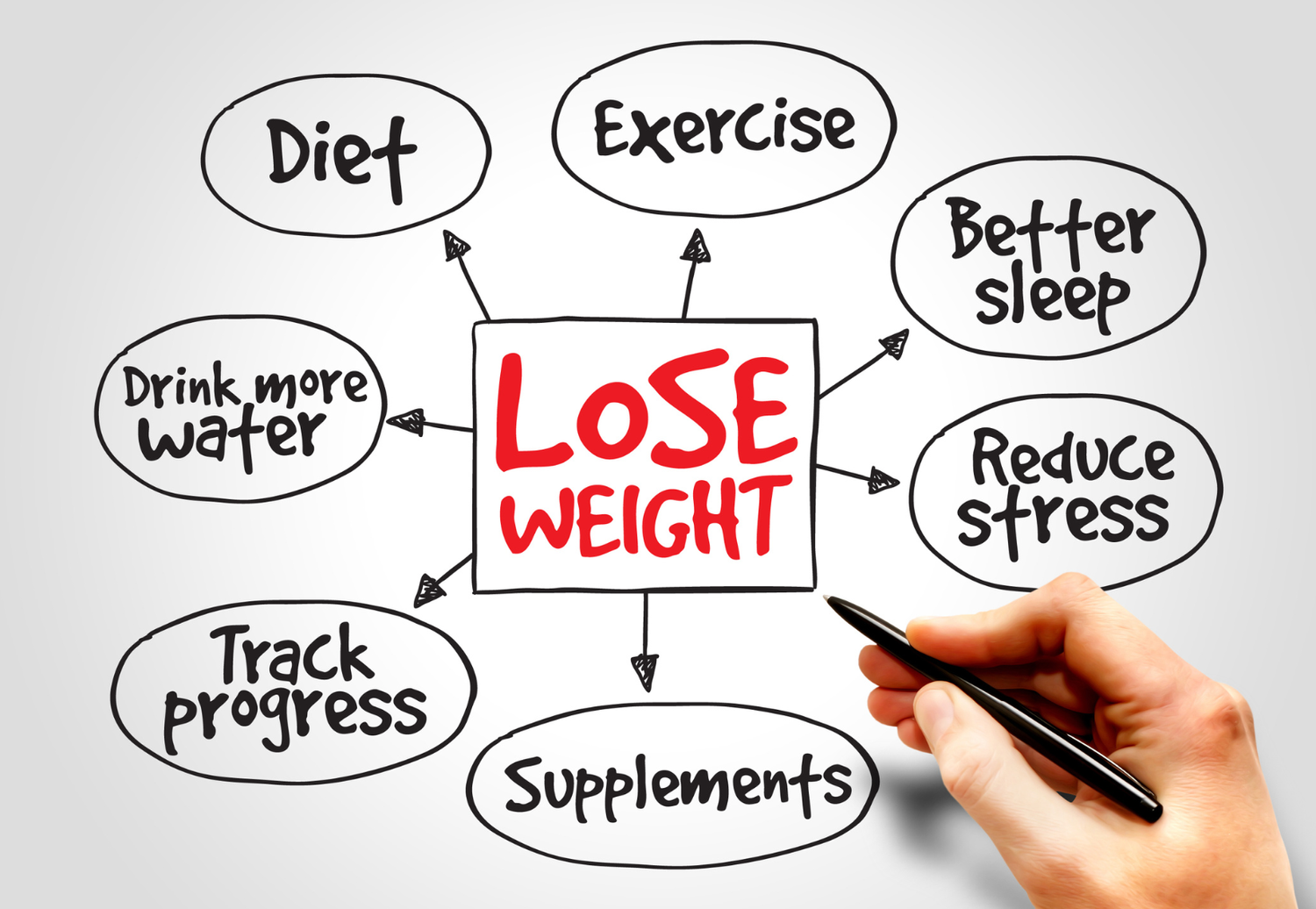Effective Strategies for Rapid Weight Loss: A Sustainable Approach
Losing weight rapidly is a goal for many, but it’s essential to approach this process sustainably to ensure long-term success and avoid potential health risks. Here are evidence-based strategies for effective and sustainable weight loss.
1. Set Realistic Goals
- Define a weight loss goal of 1-2 pounds per week. This pace is considered safe and achievable by most health professionals.
- Focus on non-scale victories like increased energy or improved fitness levels.
2. Adopt a Balanced Diet
- Prioritize Whole Foods: Incorporate fruits, vegetables, lean proteins, whole grains, and healthy fats.
- Caloric Deficit: Consume fewer calories than you burn, but avoid extreme restrictions. Aim for a deficit of 500–750 calories per day.
- Protein-Rich Meals: High-protein diets can reduce appetite and boost metabolism. Include eggs, chicken, fish, legumes, and Greek yogurt.
- Avoid Processed Foods: Minimize sugary drinks, packaged snacks, and refined carbs.
3. Stay Hydrated
- Drink at least 8–10 glasses of water daily.
- Start meals with a glass of water to aid portion control and reduce calorie intake.
- Replace sugary beverages with herbal teas or infused water.
4. Incorporate Regular Exercise
- Strength Training: Build muscle to increase your metabolic rate.
- High-Intensity Interval Training (HIIT): This short, intense exercise method burns calories quickly and keeps your metabolism elevated post-workout.
- Cardio Workouts: Activities like running, swimming, or cycling help burn fat.
- Aim for at least 150 minutes of moderate aerobic activity weekly.
5. Optimize Sleep
- Lack of sleep can lead to hormonal imbalances, increased appetite, and reduced willpower.
- Aim for 7–9 hours of quality sleep per night. Create a bedtime routine to promote better sleep hygiene.
6. Practice Mindful Eating
- Eat slowly and without distractions. Savor every bite to improve satiety and prevent overeating.
- Pay attention to hunger and fullness cues. Avoid eating out of boredom or stress.
7. Manage Stress
- Chronic stress triggers cortisol production, which can lead to fat storage, especially in the abdominal area.
- Practice relaxation techniques like yoga, meditation, or deep breathing exercises.
8. Track Progress
- Keep a food diary or use apps to monitor calorie intake and exercise.
- Take measurements or photos to document physical changes instead of relying solely on the scale.
9. Avoid Fad Diets
- Skip unsustainable approaches like extremely low-calorie diets or those cutting out entire food groups.
- Focus on building habits you can maintain long-term.

10. Seek Professional Support
- Consult a registered dietitian or healthcare provider to create a personalized plan.
- Join a support group or work with a fitness coach for accountability.
11. Celebrate Progress, Not Perfection
Weight loss is a journey, and small wins deserve recognition. Celebrate milestones like sticking to your workout plan, choosing healthier meals, or feeling more energetic. Avoid dwelling on occasional slip-ups—they’re part of the process. By focusing on progress over perfection, you’ll stay motivated and build the resilience needed to maintain your healthier lifestyle.
Key Takeaway
Rapid weight loss can be achieved safely by combining a healthy diet, regular exercise, proper hydration, and stress management. Sustainability is key; focus on creating habits that lead to long-term success rather than quick fixes.


You must be logged in to post a comment.